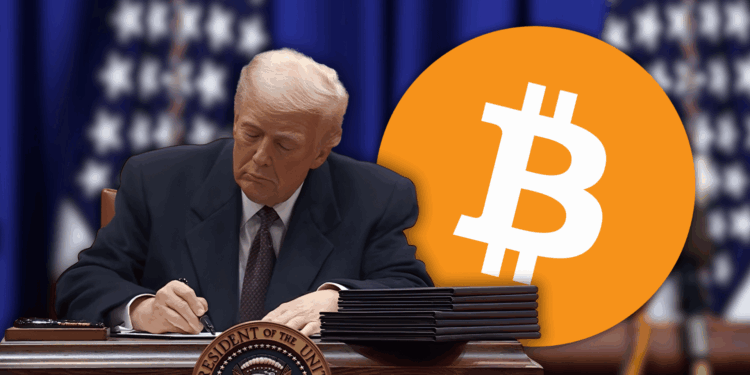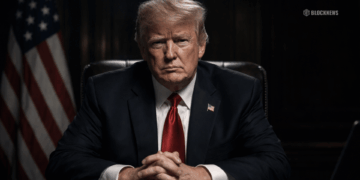- President Trump signed the GENIUS Act, the first U.S. law regulating stablecoins, alongside GOP lawmakers and crypto executives at a White House ceremony.
- Trump has earned over $620 million from crypto ventures during his second term, drawing ethical scrutiny from critics over potential conflicts of interest.
- The bill passed with bipartisan support, kicking off a pro-crypto legislative wave that includes the Clarity Act and Anti-CBDC Act, both still awaiting Senate approval.
President Donald Trump has officially signed the GENIUS Act into law, a sweeping piece of legislation that establishes the first regulatory framework for stablecoins in the United States. The signing ceremony took place in the East Room of the White House on July 18, surrounded by Republican lawmakers and top crypto executives. The law is being hailed as a major win for the crypto industry—and a reflection of Trump’s increasingly close relationship with digital finance.
Calling it “perhaps the greatest revolution in financial technology since the birth of the internet,” Trump joked that the bill was “named after me” and praised the community for their persistence. The GENIUS Act sets standards for dollar-backed stablecoins, ensuring full collateralization, regular audits, and tighter oversight for foreign-issued digital dollars. Its passage comes after a 308-122 vote in the House earlier this week, following Senate approval in June.
A President Personally Invested in Crypto Gains
Trump’s signature on the GENIUS Act is more than symbolic—it marks a formal embrace of a sector he’s increasingly profiting from. Since returning to office, Trump has reportedly earned over $620 million from his crypto ventures, including $460 million via World Liberty Financial and additional earnings from the $TRUMP meme coin. Ethics questions were raised earlier this year when he hosted a $148 million crypto fundraising dinner at his Virginia golf club.
Despite the criticism, Trump has leaned into crypto as both a political and financial strategy. He has framed support for blockchain technology and stablecoins as a pro-growth, pro-dollar policy stance. “It’s good for the dollar and it’s good for the country,” he said Friday. “And that’s why I backed you at an early stage… and I also did it for the votes.”
Critics Warn of Conflict of Interest
Democrats, meanwhile, have sounded alarms over the legislation’s potential to blur lines between public policy and personal profit. Senator Elizabeth Warren warned the law would “accelerate Trump’s corruption” by boosting the value and reach of stablecoins like his own USD1 product. “This bill will make our President, Donald Trump, the regulator of his own financial product,” she said in a May speech.
Despite the pushback, support for the GENIUS Act was bipartisan. In addition, the House also passed the Clarity Act—aimed at establishing broader crypto oversight and reducing SEC control—and the Anti-CBDC Act, which blocks the Federal Reserve from issuing a central bank digital currency. Both bills await Senate approval.
A Booming Industry with Presidential Backing
For crypto advocates, the GENIUS Act marks the start of a new chapter. With Trump’s backing and a favorable legislative environment, stablecoins are poised for mainstream adoption across payments, finance, and global commerce. Trump himself promised more growth ahead: “We’re going to be growing it even more—more than anyone ever thought.”
With clear regulation and presidential support now in place, the U.S. crypto industry is stepping firmly into the regulatory spotlight—and into Trump’s economic vision for the next era of digital money.














